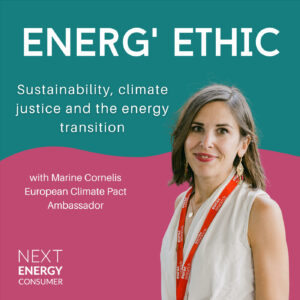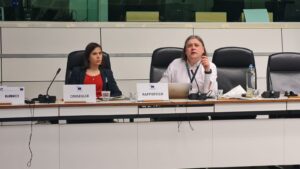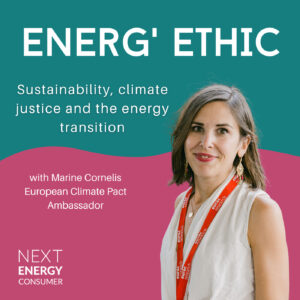Now is the time to break silos and adopt interdisciplinary approaches as “there is no time left to miss opportunities” for the people and the climate, says Yamina Saheb, OpenExp.
Born and raised in Algiers, Yamina has been working for the past twenty years at “pushing and continue pushing” policy boundaries, for instance, on the impact of global warming, summer, and mobility poverty on the well-being of the people in European policymaking. To this aim, she developed an energy and mobility index looking at the causes of energy and mobility poverty and seeing how countries have progressed over time.
Yamina explains how the Yellow vests movement was brought up by inadequate housing, energy, and mobility policies that sold an unsustainable dream, the dream of an individual house in the suburbs where you would never hear your neighbour. This model creates a dependency on personal cars and makes investments in thermal comfort in housing critical but often unaffordable. The risk is, by expanding the emission trading system (ETS) to housing and mobility, it might “expand the Yellow vest movement from France to the rest of Europe“. She also denounces that the lack of ambition in Minimum energy performance standards will “lock low income in energy poverty” and worse-performing buildings.
She also calls against the Energy Charter Treaty, an international treaty signed in the 1990s to protect investment in fossil fuels. This treaty is now being turned against policies to decarbonise energy. One tool, in particular, the investor-state dispute settlement, prevents billions of euros from being invested in net-zero transition, as they make the country pay “not just compensation for the investment that was made, but also for the profits, the potential profit that they would have made if you would not have changed your policies“. As a result, the treaty allows “foreign investors to put in place the policies they want in your country“. Yamina calls on the European Union countries to collectively withdraw from this treaty to avoid fines and create the essential conditions for Europe’s energy independence from Russian gas and real transition to net-zero.
Yamina Saheb (@ysaheb) is a lead author of the upcoming Intergovernmental Panel on Climate Change report. She holds a Ph.D in Energy Engineering and you can now find her lecturing at Sciences Po Paris. Prior to this, she worked for the Universities of Münster and Lausanne, the Energy Charter Secretariat, the Joint Research Centre (JRC) of the European Commission, and the International Energy Agency.
Find here Yamina’s work on the European Energy Poverty Index (EEPI) and here more information about the Energy Charter Treaty.
Reach out to Marine Cornelis via Twitter @MarineCornelis or LinkedIn
Music: I Need You Here – Kamarius
Edition: Podcast Media Factory
Support Energ’Ethic on Patreon https://patreon.com/Energethic
© Next Energy Consumer, 2022





